Scaling PE Talent for Value Creation: TPG and Blackstone Harness ExecAtlas
April 8, 2024
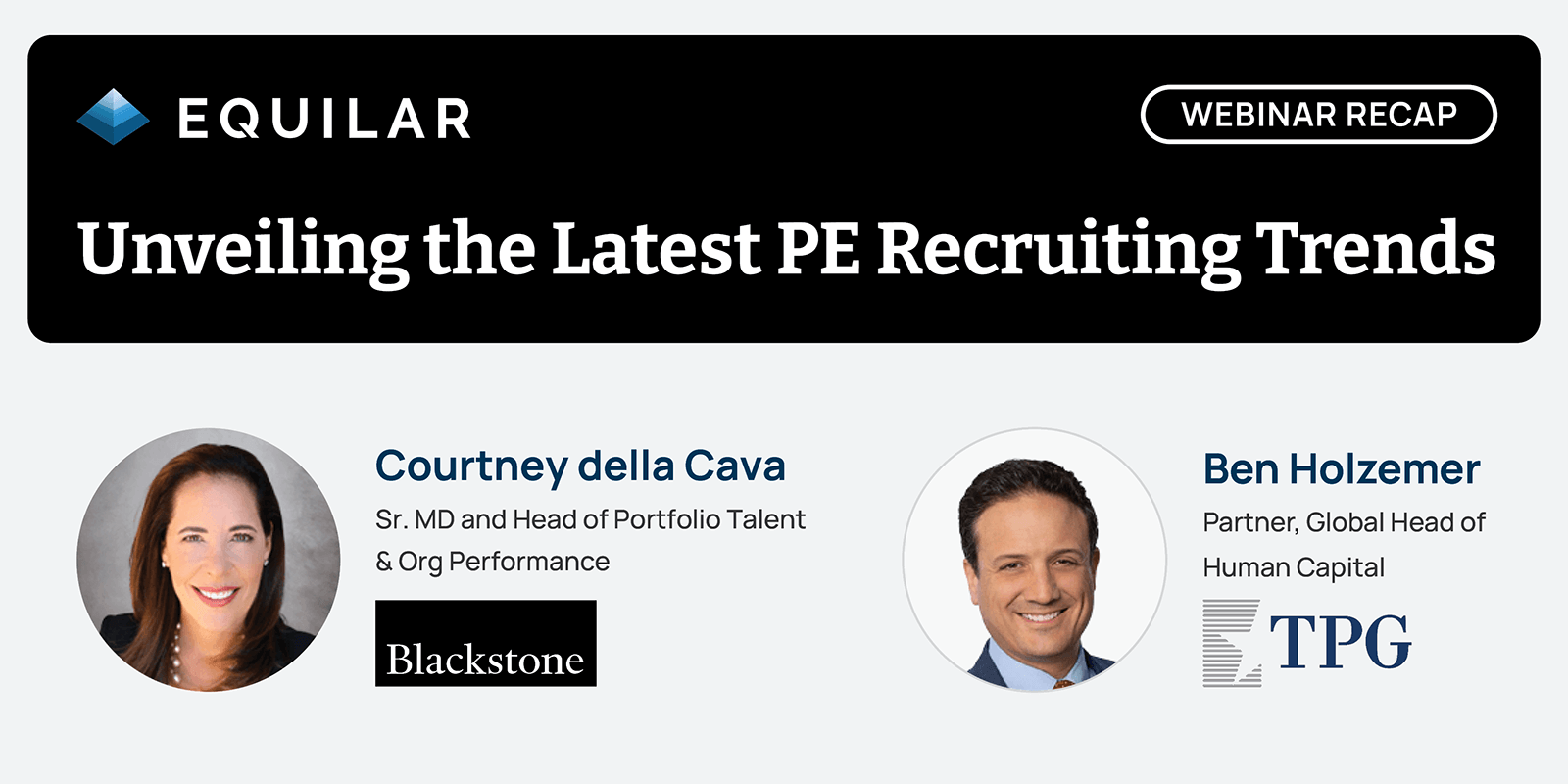
Equilar hosted a discussion focused on the key aspects of recruiting for private equity-backed portfolio companies. Industry experts from TPG and Blackstone provided valuable perspectives for partnering closely with portfolio companies to attract top-tier talent, align talent and culture with a strategy to create value, and leverage tools such as Equilar ExecAtlas and the Equilar Diversity Network for candidate sourcing. Moderated by Belen Gomez, Vice President of Strategic Initiatives at Equilar, the panel featured Courtney della Cava, Partner, Senior Managing Director and Global Head of Portfolio Talent and Organizational Performance at Blackstone, along with Ben Holzemer, Partner at TPG and Global Head of Human Capital.
The Importance of Human Capital Management
Human Capital Management (HCM) is pivotal for success within private equity-backed portfolio companies. Holzemer stresses the collaborative efforts required among stakeholders to understand the requisite capabilities in leaders, directors and teams, and to support them comprehensively throughout their roles. Ms. della Cava articulates the necessity of seeking talent that is tailored to the specific objectives and investment theses of the company. She also highlights the significance of enhancing individuals’ capabilities rather than solely replacing them. “It also just means we can bolster, be thoughtful about the broader skills, the toolkits that are required,” said della Cava.
To optimize candidate selection processes and improve onboarding, continuous improvement and leveraging external partnerships, such as with Equilar, can enhance organizational capabilities and achieve scalability in talent management across multiple portfolio companies. Holzemer recommends employing tools such as scorecards, skill matrices and value creation plans to align the capabilities of individuals with the investment thesis of the company. He emphasizes the necessity of adaptability in considering the evolving needs of leaders, boards and teams over time. Moreover, he points out a holistic approach: "it's more than just recruiting and compensating. It's really this notion of ‘how do you set teams up for success?’”
Recognizing the dynamic nature of talent management, della Cava underscores the need for a continuous improvement process, which involves monitoring portfolio reviews and making tweaks and adjustments based on evolving circumstances.
Identifying the Right Skills
When evaluating executive-level and board-level candidates for portfolio companies, della Cava prioritizes softer skills over hard skills. She views her teams as partners, claiming, “we’re not stakeholders to manage. We’re partners in the journey.” She values collaboration, transparency and humility over mere experience. Candidates displaying a learning mindset by asking questions and embracing openness are favored. Furthermore, Holzemer stresses aligning hiring processes with value creation plans and underscores the need to consider unique situation factors, highlighting the importance of context and understanding the experiences that are relevant to the situation. Common denominators for effective leaders, he notes, include “resiliency, learning agility and thinking like a partner.”
Sourcing candidates and building candidate lists cannot be done without using tools and partners. One of the most critical aspects of this process is keeping track of the candidates and their backgrounds and interests, and staying current with their citations. Holzemer emphasizes the need for investment in IT and data sources, coupled with suitable partners, to facilitate board and executive searches. Platforms like ExecAtlas are “incredibly helpful to us as a common database source for a lot of executives, particularly those that have board experience.” He notes the Equilar Diversity Network is also “a great source to make sure you're building and crafting really diverse candidate sets for whatever activity you're doing.”
Build Candidate Lists with Advanced Search
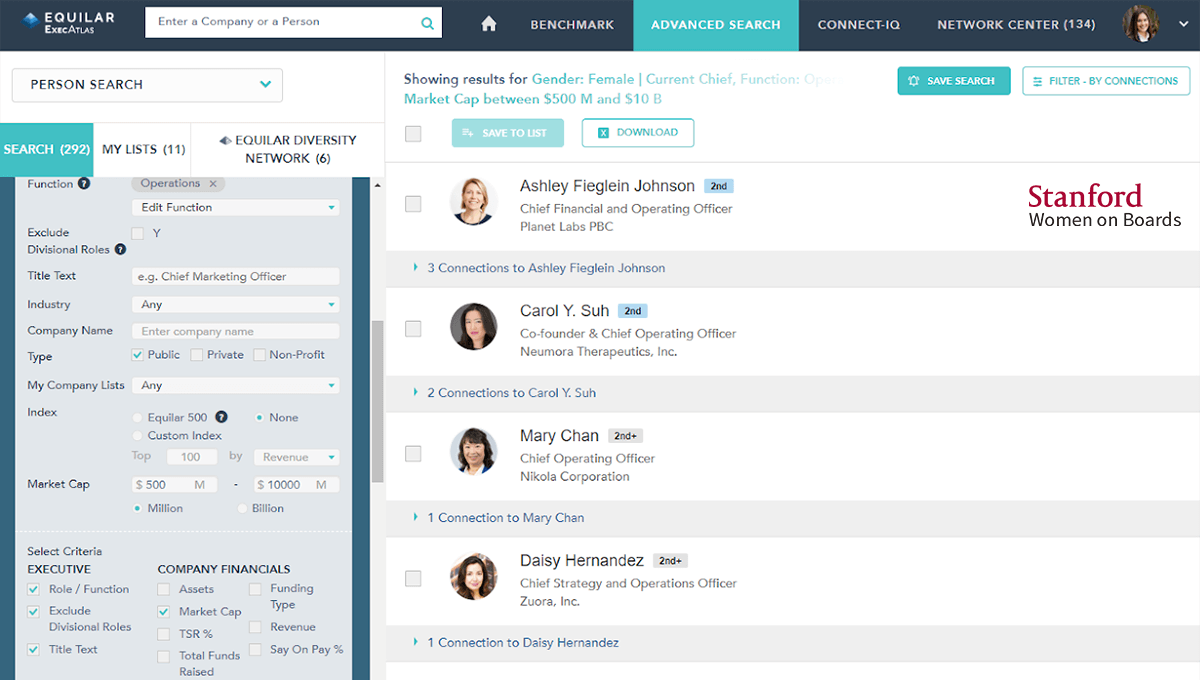
The Benefits of Technologies Like ExecAtlas
ExecAtlas houses 2.7 million profiles, aiding in candidate search, sourcing and profile maintenance. It prioritizes relationship mapping, facilitating board placements through second-degree connections and offering valuable reference points. The tool streamlines recruitment processes, enhances candidate assessments and allows for easy search saving and profile exporting.
The Equilar Diversity Network, established in 2016, comprises over 50 partner organizations, consolidating diverse talent pools into a single accessible database. It automatically filters candidates affiliated with partner organizations, simplifying talent identification. With over 9,000 profiles from these organizations, Equilar supports diversity initiatives, providing a vital resource for board development and recruitment.
Leverage the Equilar Diversity Network
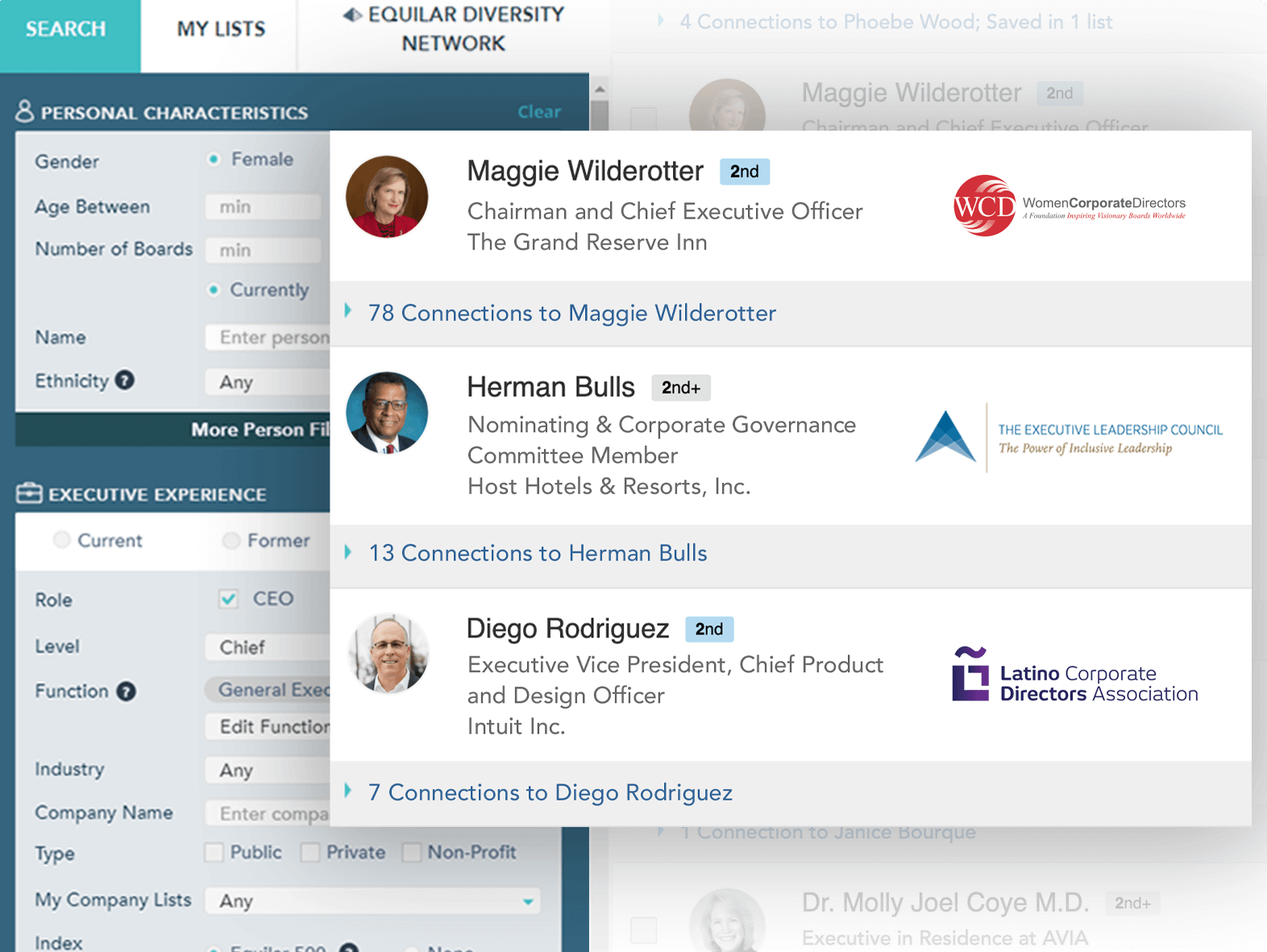
To evaluate a candidate’s suitability and potential for contributing value and strategic vision at the board level for portfolio companies, alignment with the investment is needed. Ms. della Cava seeks candidates with specific capabilities to guide, coach and support management. Additionally, candidates ought to actively participate in financial conversations. While deep domain expertise is valued, della Cava seeks individuals “who are a bit more hands-on who want to dig in, not do management.”
Candidates should showcase diverse experiences on their profiles, including both current and former board roles, as well as not-for-profit experiences. Holzemer claims, “people can’t find you for the right things if you don’t have a really thoughtful, detailed, up-to-date profile out there.” Ms. della Cava suggests asking yourself, “here’s what I’m really known for, here’s what I’m really good at,” emphasizing a nonlinear background.
Discover Diverse Candidates Through Rich Profile Data
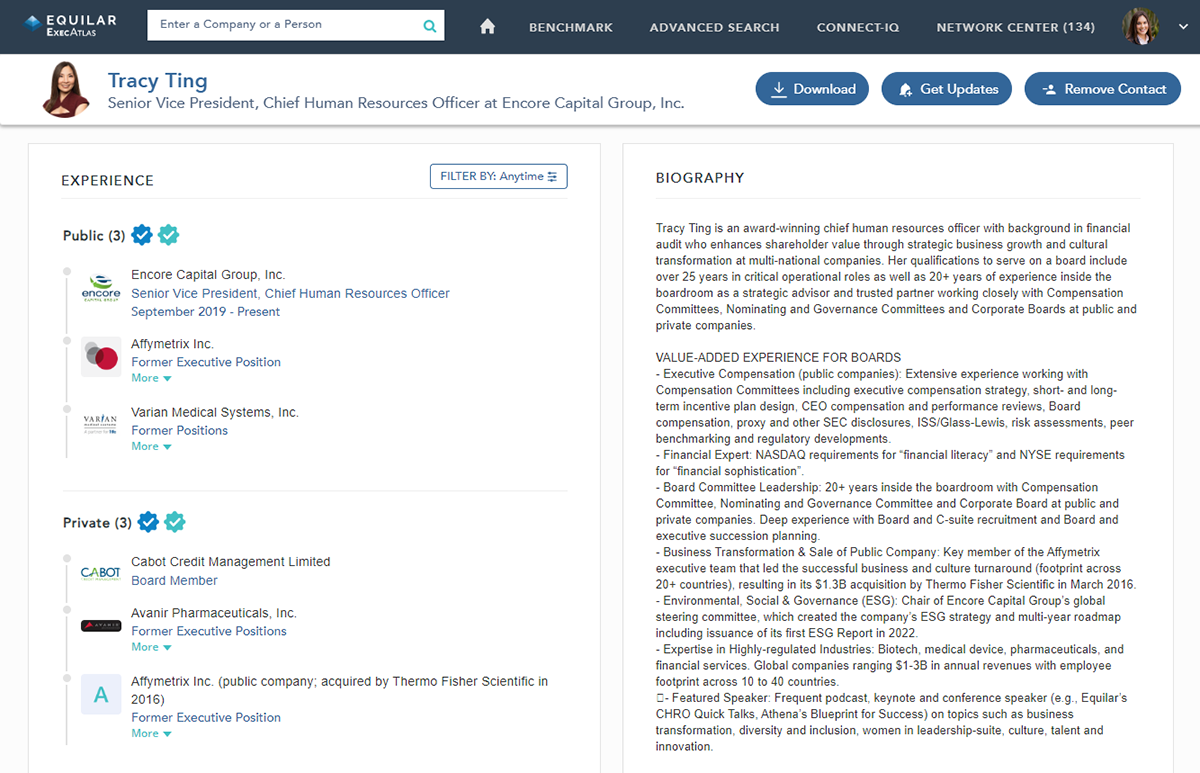
After one leaves an industry, maintaining engagement through strategic networking, ongoing education and leveraging expertise is essential. Ms. della Cava emphasizes the need to demonstrate staying current with market dynamics, showcasing the ability to navigate today’s competitive landscape effectively. Holzemer underscores the significance of credibility and staying updated on industry trends, recommending involvement in industry associations or advisory roles to stay connected and informed while contributing expertise.
Looking ahead, conversations are expected to shift toward technological advancements, particularly focusing on artificial intelligence (AI). Holzemer draws parallels between AI and Linkedin’s transformative impact on talent management. Despite concerns about job displacement, he believes AI will enhance human capabilities rather than replace them. Reflecting on LinkedIn’s impact, Holzemer notes that it “became a catalyst for more effective search, recruitment, assessment and talent management.” He predicts that in a few years, AI will similarly introduce innovations that amplify human abilities, enabling individuals to focus on areas where they can add unique value. Ms. della Cava anticipates significant access to diverse talent pools, facilitated by AI. She foresees a shift “that will put a focus on probably less tactical and more on the judgment,” highlighting the continued importance of human judgment in talent management.
Contact
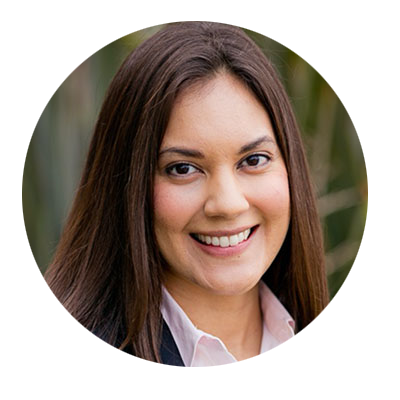
Belen Gomez
Vice President of Strategic Initiatives and Communications at Equilar
Please contact Belen Gomez at bgomez@equilar.com for more information.
 Solutions
Solutions


